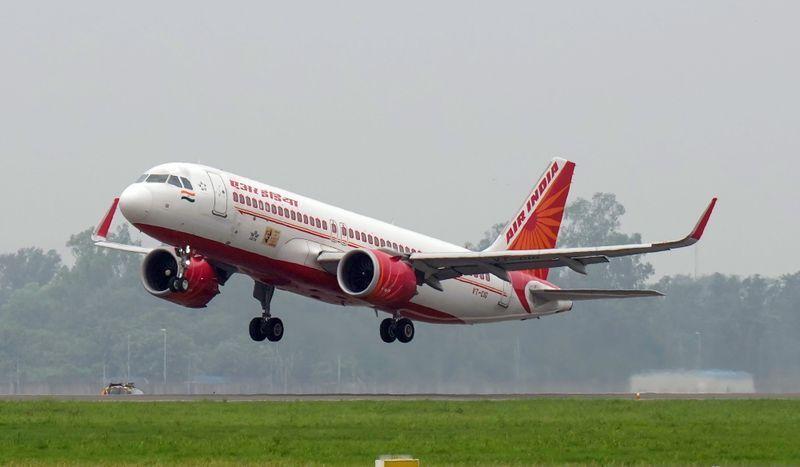
Air India to Avoid Persian Gulf Airspace Amid Israel-Iran Conflict
The ongoing conflict between Israel and Iran has led to a significant development in the aviation sector, with Air India announcing that it will be avoiding the use of certain airspace over the Persian Gulf in the coming days. This decision has been taken as a precautionary measure to ensure the safety of its passengers and crew.
In a statement, Air India said that it will be using “alternative paths for flights to destinations including the UAE, Qatar, Oman, and Kuwait.” The airline emphasized that its flights currently do not operate over the airspaces of Iran, Iraq, and Israel, but it is taking this step to further minimize any potential risks.
The announcement comes amid heightened tensions between Israel and Iran, which have been engaged in a series of military conflicts and proxy wars in recent years. The situation has been further complicated by the involvement of other regional powers, including the United States and its allies.
Air India’s decision to avoid Persian Gulf airspace is a significant development, as it is one of the largest and most prominent airlines in the region. The airline operates a significant number of flights to destinations in the Middle East and beyond, and its decision to avoid a particular airspace will have a significant impact on its operations.
The airline’s statement did not provide further details on the exact routes that will be used as an alternative, but it is likely that it will be working with air traffic control authorities and other airlines to ensure a smooth transition.
The decision to avoid Persian Gulf airspace is not unique to Air India. Other airlines, including Emirates, Etihad, and Qatar Airways, have also been taking precautions to avoid the region in recent weeks.
The ongoing conflict between Israel and Iran has already had a significant impact on the aviation sector, with many airlines canceling or diverting flights to and from the region. The situation has also led to increased security measures at airports, including the deployment of additional security personnel and the implementation of enhanced screening procedures.
Air India’s decision to avoid Persian Gulf airspace is a further indication of the growing concern over the safety of air travel in the region. The airline’s statement emphasized the importance of ensuring the safety of its passengers and crew, and it is likely that other airlines will follow suit in the coming days.
The impact of the conflict on air travel is not limited to the Middle East. Many airlines have been forced to reroute flights to avoid the region, which has led to increased travel times and disruptions to schedules. The situation has also led to increased costs for airlines, which are already facing significant challenges in the wake of the COVID-19 pandemic.
In addition to the impact on air travel, the conflict between Israel and Iran has also had significant consequences for the global economy. The situation has led to increased tensions between the United States and Iran, which has resulted in the imposition of severe sanctions on the Iranian economy. The conflict has also led to increased security concerns in the region, which has had a significant impact on global trade and commerce.
In conclusion, Air India’s decision to avoid Persian Gulf airspace amid the Israel-Iran conflict is a significant development that highlights the growing concerns over the safety of air travel in the region. The airline’s decision is likely to have a significant impact on its operations, and it is likely that other airlines will follow suit in the coming days. The conflict between Israel and Iran has already had significant consequences for the global economy, and it is likely to continue to do so in the coming weeks and months.






